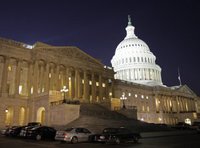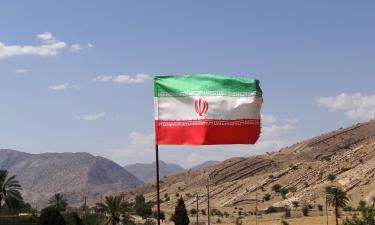Why Western democracy is the worst of regimes
By Nicolas Bonnal

Strong arguments show that democracy may often prove the direct opposite of liberty
Many great countries nowadays, like Russia, China, Venezuela and Iran are labelled undemocratic in the West. But is it evil? Is it such a flaw? Let us analyze the situation and that perilous insult.
Western democracy has been criticized since the beginning, and especially by the greatest minds: I already mentioned Thoreau, Edgar Poe or Tocqueville (In his immortal book, he writes that the doctrine of necessity will soon paralyze the activity of modern society, and reduce Christians to the level of the Turks).
The end of the nineteenth century sees a new wave of critics emanating from more technical analysts, like Belorussian scientist Ostrogorski or Irish political thinker William Lecky. These thinkers, among many others, assist the development of parliaments everywhere, parliaments that bring discontents, lack of liberties, huge debts and hidden elites' control of the public opinions. Democracy is by no way a bargain. Ostrogorski's books on American political life reveal that democracy is not... democratic, yet that everything is controlled by invisible wire-pullers and the "machine" of militants, "bosses" and political activists. Ostrogorski will inspire Augustin Cochin, the greatest commentator of French revolution.
The system of the political parties is criticized at these times. We assist too, around 1890, a cruel wave of imperialism, the development of plutocracy mixed with social unrest and hatred, and ethnic wars everywhere. At the twentieth century we shall reap world wars, Bolshevism and fascism as the heirs and answers to these democratic defects. All the political extremists of the twentieth century were bred in this confused, dramatic and unsatisfactory atmosphere.
William Hartpole Lecky was by no way an extremist. He just observed and stated that democracy is an imperfect and dangerous political system. His book was rejected of course, but his critics are still pertinent. Everywhere in the West we have nowadays racial strife, huge public debts, miserable politicians and a lack of real democracy, not to mention a perpetual war against the neighbour.
Let us study our author, who was a protestant preacher and a brilliant historian. Like Nietzsche or Tocqueville, Lecky remarks the biggest role of "the coldest of cold monsters", the state, in our modern democracy
The expansion of the authority and the multiplication of the functions of the State in other fields, and especially in the field of social regulation, is an equally apparent accompaniment of modern democracy. This increase of State power means a multiplication of restrictions imposed upon the various forms of human action. It means an increase of bureaucracy, or, in other words, of the number and power of State officials. It means also a constant increase of taxation, which is in reality a constant restriction of liberty.
Of course Lecky is an elitist and he mistrusts "the most ignorant classes", who "are most likely to follow with an absolute devotion some strong leader." This is what will happen in Germany and elsewhere after the war!
Thanks to God we have been spared such an adventure in our time! We have just elected innocent and harmless Bush, Blair or Hollande!
Yet we are confronted today to another type of democratic peril: the lobbies, which control and undermine American or European institutions, senate and parliaments. This defect was thus described by Lecky:
I have pointed out the tendency of modern democratic parliaments to break up more and more into small groups with the inevitable consequence of enfeebling the executive ; destroying or dislocating the party system; giving a disproportionate power to extreme, self-seeking and skilfully organised minorities; turning important branches of legislation into something little better than a competition of class bribery, and thus lowering the tone of public life and the character and influence of public men.
Denouncing self-seeking and skilfully organised minorities is courageous and perilous nowadays! But to our insistent conspiracy theorist William Lecky, even in 1898 the American senate is declining. Nor, as far as I can judge, have the events of the last few years at all diminished the belief of the most competent Americans that there has been a marked decline in the character of the American senate.
If he has only listened to the recent, discomforting and scandalous hearings of poor Chuck Hagel!
Lecky then evokes corruption in France, "Austrian Empire race warfare" (at the time of Hitler's youth!), "sanguinary riots" in Italy and the steady growth of Italian socialism that breeds a huge debt. France, on her way to decadence, is ill-governed since "the system of small and isolated groups makes ministerial stability impossible".
Lecky shrewdly establishes that on the other side of the Atlantic Brazil, which during the period of its empire was a model of financial solvency and integrity, has passed, as was predicted in this work, and without the pressure of any foreign war, into the ranks of defaulting States.
In order to be elected or re-elected, a politician, mayor or depute has to promise a big fat spending and redistribution of wealth. Lecky thus describes the incomparable spending of the French third republic: there are the military purposes, the costly navy, national education (the expense of this work was enormously increased by the anti-ecclesiastical spirit) and so on.
But, in addition to these things, there has been another great source of expense, on which the best French economists dilate with unfeigned alarm. It is the enormous and wasteful expenditure on public works which are, for the most part, unremunerative; which are intended, by giving employment, to conciliate the working-classes, and which are extended to every department, almost to every commune, as a reward for supporting the Government.
Think nowadays of the ruin of Spanish or Greek economy linked to public expenses, public works and political corruption. The debt is thus the natural daughter of democracy.
Democracy thus rhymes with bankruptcy; it has always too rhymed with war; famous sociologist Sorokin once calculated that no regime was instigator of so many wars than democracy. Ask the Greeks and the Romans in the antiquity: in order to pays their electors, politicians like Caesar had to enslave populations, invade and plunder entire countries!
Let us conclude, in order to reassure our Russian, Chinese or Iranian friends: if someone labels you undemocratic, take it as a compliment. That means you are fighting for freedom, peace and prosperity.
William Hartpole Lecky democracy and liberty, New York, 1903 (archive.org)
Moses Ostrogorski, democracy and the party system, New York, 1910.
Nicolas Bonnal
France
Subscribe to Pravda.Ru Telegram channel, Facebook, RSS!


